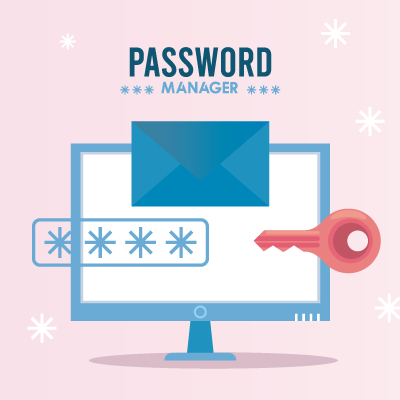Home
About Us
IT Services
Understanding IT
- Understanding General Data Protection Regulation Compliance
- Understanding Automation
- Understanding Ransomware
- Understanding Shadow IT
- Understanding Your Virtual Identity
- Understanding the Modern Office
- IT Threat Glossary
- Understanding Business Continuity
- Windows Server 2003: End of Life
- Understanding the Internet of Things
- Understanding Network Security
- Understanding SOX
- Understanding BYOD
- Understanding PCI DSS
- Windows XP End of Life
- Understanding HIPAA
- Cloud Computing
News
Blog
Support
Contact Us
(713) 979-2090
- Register
- Login
Zinc Blog
To Safely Store Passwords, Use a Centralized Password Manager
In this blog and our conversations with clients, we frequently discuss the importance of protecting accounts with complex and unique passwords and multi-factor authentication. These actions are crucial, but there is a tool out there that can really improve any business’ account security: the password manager.
Today, we’ll discuss the password manager and why it is such a great tool for keeping passwords complex and secure.
What is a Password Manager?
When you think of a password manager, you probably think of the popup your web browser will present with the offer to “remember” your password for a given website as you successfully log in.
While this isn’t incorrect, per se, it is an impression we’d prefer you avoid.
We’d much rather have you associate the term “password manager” with a standalone piece of independent software that allows you to store account information in a secured and encrypted vault, protected by a single, secure password that the user must provide before accessing their vault.
To make it even more secure, businesses should use an enterprise-level password manager that gives admins the ability to deploy and control it.
Why do we make this distinction? There are a few reasons…
A Standalone Password Manager is Going to Be More Secure
One of the most essential features of a standalone password manager is that reputable ones utilize encryption to protect their stored credentials. That means that if someone did manage to brute force their way into your vault, they would be met with unintelligible gibberish that would do nothing to help them access your accounts.
This protection is extremely valuable and is a far cry from the plaintext lists in which most browsers save credentials. The more protection for your passwords, the better.
A Standalone Password Manager Helps You Create More Secure Credentials
A password manager allows you to use far more secure passwords than most people would ever consider to be an option because it helps generate long, complex, and completely random strings of letters, numbers, and characters.
Which of the following would you find easier to guess:
Rockywinsfacebook
…or…
fgb+4655%^&fdbgvv6543f565//.846v1fb5b(6hn264
The first would be easier to guess, especially if you know that the user in question liked Rocky IV. A computer would also find it easier, as it relies on words found in the dictionary, which the computer checks first. However, the password manager would generate the second option, and since it securely stores credentials, you have no reason to memorize that particular password.
A Standalone Password Manager is Incredibly Easy to Use in More Places
Finally, good password managers are standalone pieces of software, meaning they aren’t tied to your browser by necessity and can be used for other programs and needs. That said, many password managers also offer secure browser extensions to make populating your credentials into a website more convenient.
Compare this to a browser’s built-in password storage, and there’s really no comparison.
We Can Help You Implement a Trustworthy Password Manager to Streamline Your Business
Contact Zinc to learn more about keeping your oh-so-valuable access credentials and other everyday needs, like business credit card information, safe and secure. We can help you set up a password management system that gives your employees access to precisely what they need for their roles. Give us a call at (713) 979-2090 today.
About the author
Zinc has been serving the Texas area since 2017, providing IT Support such as technical helpdesk support, computer support, and consulting to small and medium-sized businesses.
- You are here:
- Home /
- Blog /
- Zinc IT Team /
- Let’s Talk About the “Compressed” 4-Day Workweek


Comments